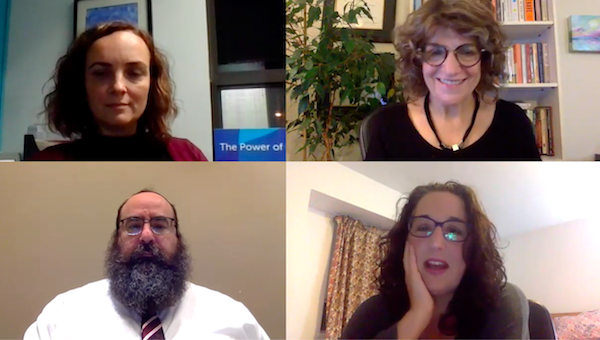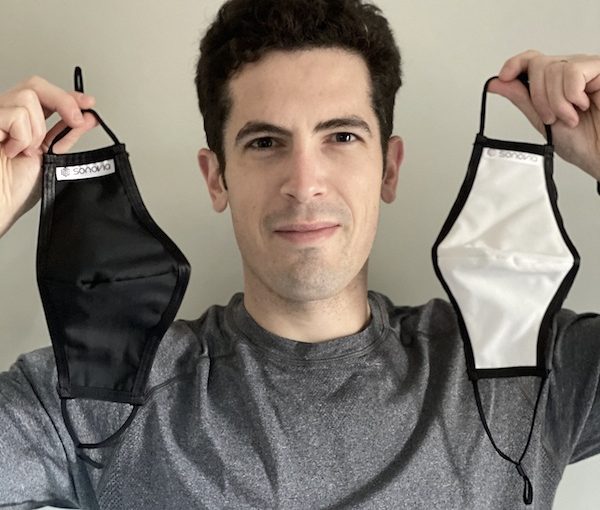Members of the Jewish community, as well as members of various professional organizations, are calling on the government of British Columbia to do more to regulate practising therapists and counselors in the province.
According to the Federation of Associations of Counseling Therapists in British Columbia (FACTBC), which is at the forefront of the campaign for this change, there is currently no regulatory body for counseling therapists in the province and, therefore, there are no regulatory standards for the work that counseling therapists do.
As it stands, they claim, someone can call themselves a mental health professional in British Columbia without having the checks that exist elsewhere in Canada. This, FACTBC points out, differs significantly from Ontario, Quebec and Alberta, which have all established regulatory bodies to oversee who can become a mental health professional. And, they add, the remaining provinces have done more than British Columbia when it comes to the consideration of implementing regulation.
A member of the Jewish community recently came to the Independent with her story. In her attempts to remove a social worker from her mother’s life, she encountered what she believes were numerous inadequacies within the present system regarding the protection of the public’s interest and confidence.
“When we seek the help of doctors and nurses, there is a protected title that tells us the person is qualified and safe and that there is a professional regulator to back up this promise,” she said. “Regulation protects people from harm. I cannot change the events of the past, but I can take from that experience and do what I can to ensure that all our citizens are protected, moving forward.
“I knew,” she added, “and had confirmed by other counselors and social workers that what this registrant was doing was in violation of their professional code. I saw my mother become further isolated from friends and family, while her health continued to decline both mentally and physically, while in this registrant’s care.”
The community member filed a complaint with the B.C. College of Social Workers (BCCSW). “Through this experience, I saw firsthand the lack of transparency in the complaint and discipline process that gives social workers the ability to enter negotiated complaint resolution agreements (CRAs) in exchange for keeping matters confidential. How can the public have confidence in regulators if the public is not aware of actions taken by regulators to protect them?” she wondered.
The community member then did what many who lack the financial means could not: she filed a civil claim against the social worker. She was not looking for money, she told the Independent; rather, she was looking for accountability and safety.
In the end, the woman and her family received an apology from the registrant and a promise to not repeat the following conduct: failing to differentiate between professional and personal boundaries; creating a situation of dependence with clients; and failing to limit their practice within the parameters of their competence.
“The college, in their inquiry decision, acknowledged that the time the registrant spent with my mother and the amount the registrant billed were not reasonable. I am not sure I will ever be able to fully reconcile with the events that occurred over a three-year span at the hands of a social worker, who was a friend at the time, and [that] I helped facilitate the introduction to my vulnerable, senior mother,” the woman said.
“To help with my own personal healing,” she added, “I elected to join FACTBC’s stakeholder table. I hope to lend my voice to ensure social workers, counseling therapists and emergency medical assistants who deal with our most vulnerable citizens are recognized as health professionals and regulated under the Health Professions Act.”
For Shelley Karrel of Jewish Addiction Community Services (JACS) Vancouver, the importance of regulation for counselors in British Columbia cannot be overstated. “For counselors working in the area of addiction and recovery, it is critical to know the importance of assessment, understanding the various stages of addiction, being able to identify the options available for treatment and recovery,” she said.
Karrel explained that understanding co-morbidity – i.e., the presence of one or more additional conditions – of mental health issues with addiction requires psychotherapists and counselors to have the proper training and education to know how to help clients deal with their various challenges.
“Having counseling fall under a regulated body will give clients the assurance they are dealing with qualified professionals who have to meet professional standards of practice, ongoing continuing education and clinical supervision,” she stated.
According to Glen Grigg, a Vancouver clinical counselor and the chair of FACTBC, “proper regulation will prevent consumers from harm. A consumer should not have to guess whether the therapist is equipped to deliver the services they promise. Moreover, when harm is done, it is important to know that a registrant’s college has the power to bring restoration and remediation when harm has occurred.”
FACTBC, which is comprised of 14 professional organizations that represent 6,000 mental health professionals in the province, is asking for safety and accountability. On professional title, it recommends one legislative authority and one coherent and fair process that prevents harm and has the power to act accordingly when harm has been done.
The B.C. government has said that it will first implement modernization of the health professions regulatory system – a step that FACTBC enthusiastically supports – and then give attention to the mental health system.
To Grigg, “this response comes down to saying, in effect, ‘despite the opioid crisis and mental health fallout from the pandemic, we can defer this issue.’ When pressed for what is intended after a new regulatory process is put into place, timeline unknown, the response is that government will ‘recommend’ that professions, such as counseling therapy and social work, become a ‘priority.’ A recommendation to a yet-to-be created bureaucracy falls far short of commitment and action.”
Grigg added, “FACTBC has been advocating for public protection where counseling therapy is concerned for more than 20 years and have heard, over and over, variations on the theme, ‘Yes, of course, we are going to protect the public, but later, at a time we’re not prepared to specify.’”
FACTBC does give the province credit for creating a Ministry of Mental Health and Addictions – a huge step forward, in their view, as was the $5 million the province put towards increasing mental health services. What the government needs to do to follow up on this momentum is to regulate counseling therapy, they assert.
At present there is no way of accurately ascertaining how many practising counselors there are in British Columbia. However, Grigg cites what Ontario discovered. In that province, in the time since they implemented statutory regulation on counseling therapists, they found that half the people providing services did not have any form of registration or certification.
“That’s dangerous,” said Grigg. “And we suspect that the situation in B.C. is similar but, because there is no central authority, even the scale of the problem is guesswork.”
He stressed, “It’s easy to see why this is so crucial. Suppose you were sick or injured and went to your local clinic or emergency department and discovered that it was up to you to figure out whether the people working there really were nurses and doctors, and whether they were qualified to provide care? That’s what people looking for counseling services are up against every day in B.C. There is no single title, like doctor or nurse or dentist or pharmacist, that identifies qualified and accountable counseling therapists.”
Sam Margolis has written for the Globe and Mail, the National Post, UPI and MSNBC.



